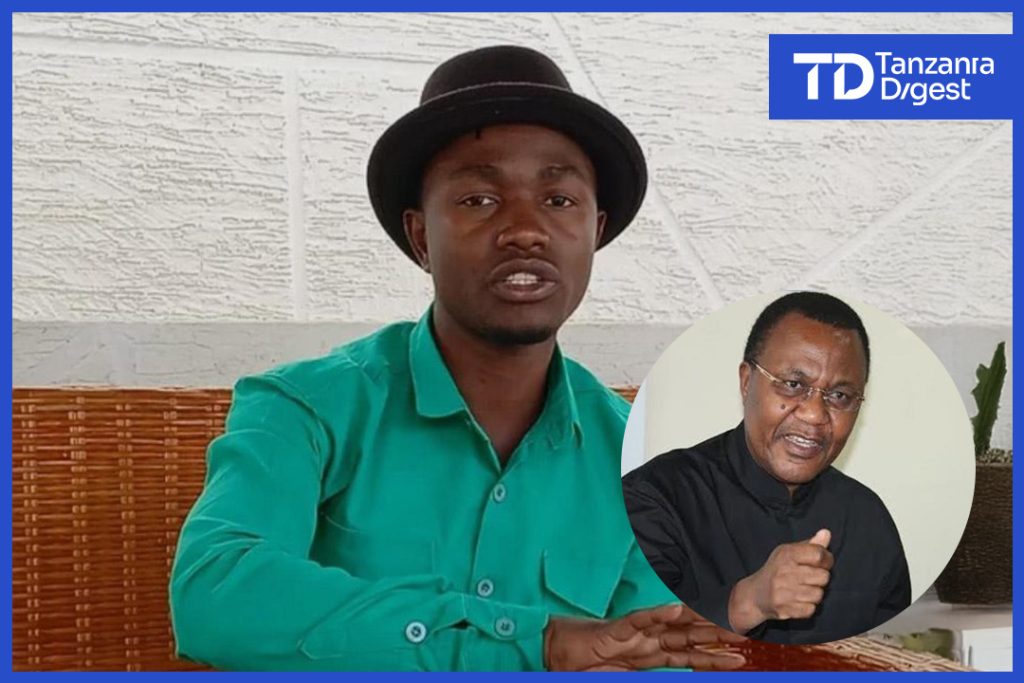David Evance Komba declaring he will challenge the incumbent Ismani constituency MP, Minister of state in the Prime Minister’s office incharge of policy and coordination of parliamentary affairs.
Little known Don of the Mbeya Catholic University, David Evance Komba, has declared his interest to run for Ismani parliamentary seat, essentially, locking horns with the 30 year MP in William Lukuvi who has yet to indicate his political future.
Mr. Komba is a lawyer by profession. Speaking before reporters in Iringa Municipality, he said he was motivated by a passion to bring development in his constituency.
What is biography and how does he stand against the establishment candidate in Hon. William Lukuvi?
Here is a comprehensive analysis of David Evance Komba’s background and his challenge against incumbent MP William Lukuvi in Ismani constituency:
David Evance Komba: Biography and Profile.
1. Birth Place, Academic and Professional Background:
Mr. Komba was born at Lwanga village, Kihorogota ward, Ismani constituency in Iringa region. Komba is described as a “lawyer by profession” with affiliations to Mbeya Catholic University, where he serves as a lecturer.
While specific details of his academic qualifications are limited, his position at a Catholic university suggests a foundation in ethics and social principles aligned with faith-based education systems in Tanzania.
2. Institutional Context:
As a lecturer at Mbeya Catholic University, Komba operates within an educational framework emphasizing “quality education in truthfulness and freedom of thought,” professional competency, and service to humanity. This aligns with the values promoted by similar institutions like Mwenge Catholic University (MWECAU), which stress “critical thinking, research, and practical application” .
3. Political Profile:
Characterized as a “little-known Don,” Komba lacks national recognition or prior electoral experience. His declaration represents a challenge from outside Tanzania’s political establishment, leveraging his academic credentials rather than a traditional political network.
William Lukuvi:
The Incumbent Establishment Candidate.
– Political Tenure:
A dominant figure in Ismani politics for 30 years, currently serving as Minister of State in the Prime Minister’s Office for Policy and Coordination of Parliamentary Affairs.
– Advantages:
– Extensive government experience and resource access.
– Established voter networks and name recognition.
– Affiliation with the ruling party (CCM), which dominates Tanzanian politics.
– Uncertainty:
His “yet-to-indicate” political future suggests possible retirement or vulnerability, creating an opening for challengers.
Comparative Analysis: Komba vs. Lukuvi.
| No. | Aspect. | David Evance Komba. | William Lukuvi. |
| 1.0 | Experience. | Academic/Legal background; no prior elected office. | 30-year incumbency; senior ministerial role. |
| 2.0 | Public Profile. | Limited recognition (“little-known”). | Nationally established figure. |
| 3.0 | Campaign Narrative. | Anti-establishment reform; ethics-driven governance. | Continuity; experience; political connections. |
| 4.0 | Institutional Support. | Likely grassroots/academic networks. | Ruling party (CCM) machinery and state resources. |
Key Dynamics in the Race.
1. Strengths of Komba:
– Ethical Appeal:
His Catholic university affiliation positions him as a candidate of integrity, contrasting with potential perceptions of entrenched political corruption.
– Youth and Change:
May resonate with younger voters seeking generational turnover.
– Professional Credibility:
Legal expertise offers a foundation for policy-driven advocacy.
2. Challenges for Komba:
– Resource Disparity:
Lukuvi’s access to state and party resources dwarfs Komba’s capabilities.
– Name Recognition:
Overcoming Lukuvi’s deep-rooted presence requires significant grassroots mobilization.
– Political Machinery:
Tanzania’s electoral landscape favors established CCM candidates.
3. Public Sentiment Factors:
– Anti-incumbency fatigue after three decades of Lukuvi’s representation.
– Rising demand for transparency and competency in governance, aligning with Komba’s profile.
Conclusion: Uphill Battle with Strategic Opportunities.
Komba’s bid symbolizes a “clash between academic idealism and political establishment” While his lack of experience and resources makes victory improbable under current conditions, Lukuvi’s hesitation about reelection could create an opening. Komba’s viability hinges on:
– Mobilizing youth and reform advocates disillusioned with long-term incumbents.
– Framing his legal/academic background as an asset for policy innovation.
– Exploiting any perceived decline in Lukuvi’s local support.
Read more analysis by Rutashubanyuma Nestory

